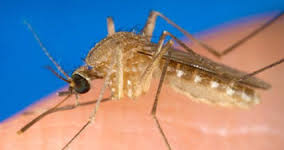Iowa’s 1st West Nile Virus case of 2015 confirmed in Ringgold County
August 7th, 2015 by Ric Hanson
The Iowa Department of Public Health (IDPH) today (Friday) announced testing by the State Hygienic Lab (SHL) has confirmed the first human case of West Nile virus in Iowa this year. The case is an adult female (18 to 40 years of age) from Ringgold County, who is recovering. IDPH Medical Director, Dr. Patricia Quinlisk says “This West Nile case should serve as notice that the virus is out there and Iowans should take precautions.”
West Nile virus is transmitted through mosquitoes. The best way to prevent the virus is to eliminate mosquito breeding areas and to use insect repellent when outdoors. Iowans should take the following steps to reduce the risk of exposure to West Nile virus:
Iowans should take the following steps to reduce the risk of exposure to West Nile virus:
Use insect repellent with DEET, picaridin, IR3535, or oil of lemon eucalyptus. Always read the repellent label and consult with a health care provider if you have questions when using these types of products for children. For example, DEET should not be used on infants less than 2 months old and oil of lemon eucalyptus should not be used on children under 3 years old.
Avoid outdoor activities at dusk and dawn when mosquitoes are most active.
Wear long-sleeved shirts, pants, shoes, and socks whenever possible outdoors.
Eliminate standing water around the home because that’s where mosquitoes lay eggs. Empty water from buckets, cans, pool covers and pet water dishes. Change water in bird baths every three to four days.
Quinlisk notes that using an insect repellant containing DEET provides protection against both mosquitoes, which can carry West Nile virus and ticks, which can carry Lyme disease. So far this year, there have been 111 cases of Lyme disease in Iowa.
Approximately 20 percent of people infected with West Nile virus will have mild to moderate symptoms such as fever, headache, body aches and vomiting. Less than one percent of people infected become seriously ill and rarely someone dies. Since West Nile first appeared in Iowa in 2002, it has been found in every county in Iowa, either in humans, horses, or birds. In 2014, there were 15 human cases of West Nile virus and zero deaths.
For more information about West Nile virus, visit http://bit.ly/1iTO2Vc. To learn about Lyme disease, go to http://bit.ly/1MSWe4G.





